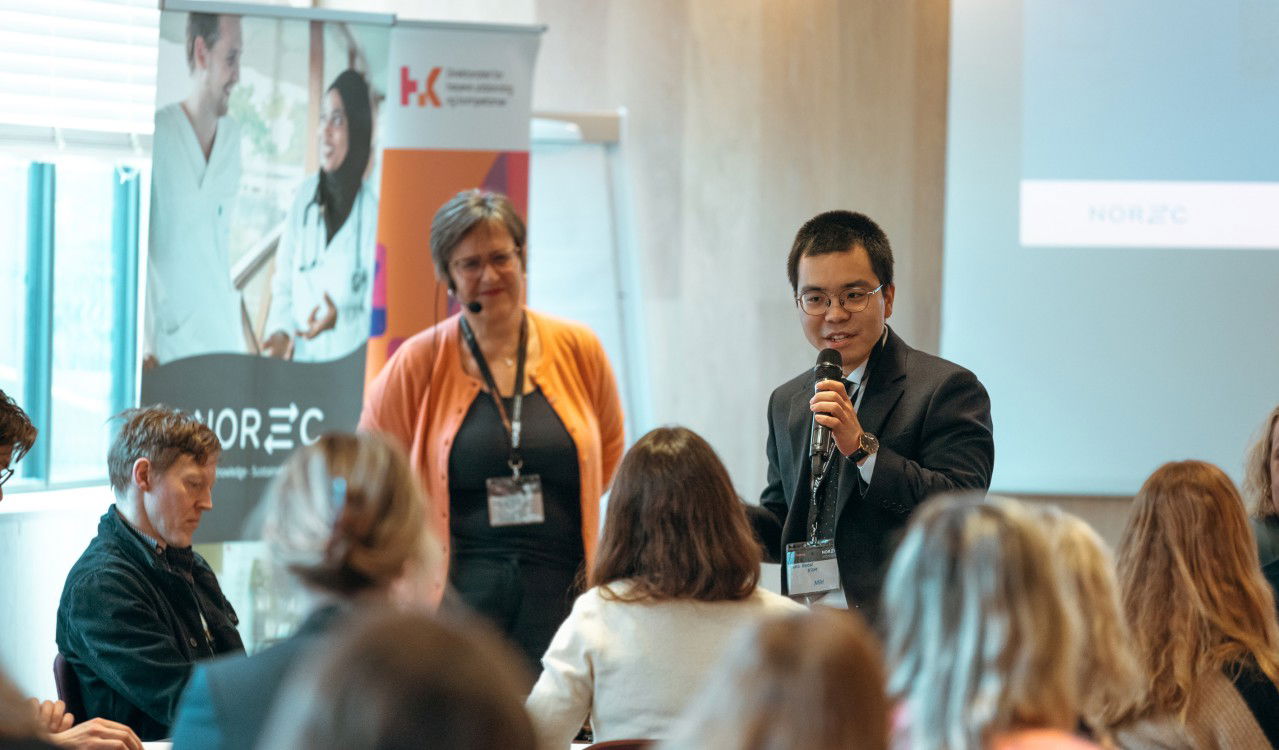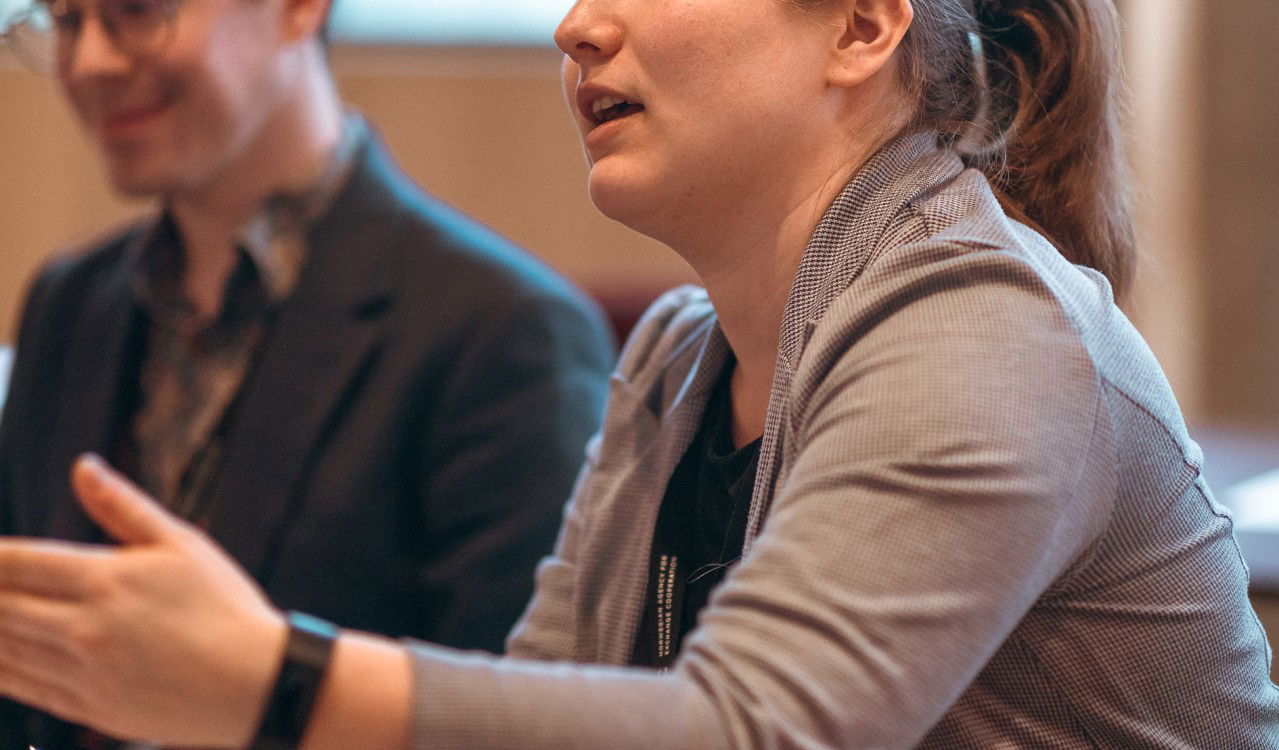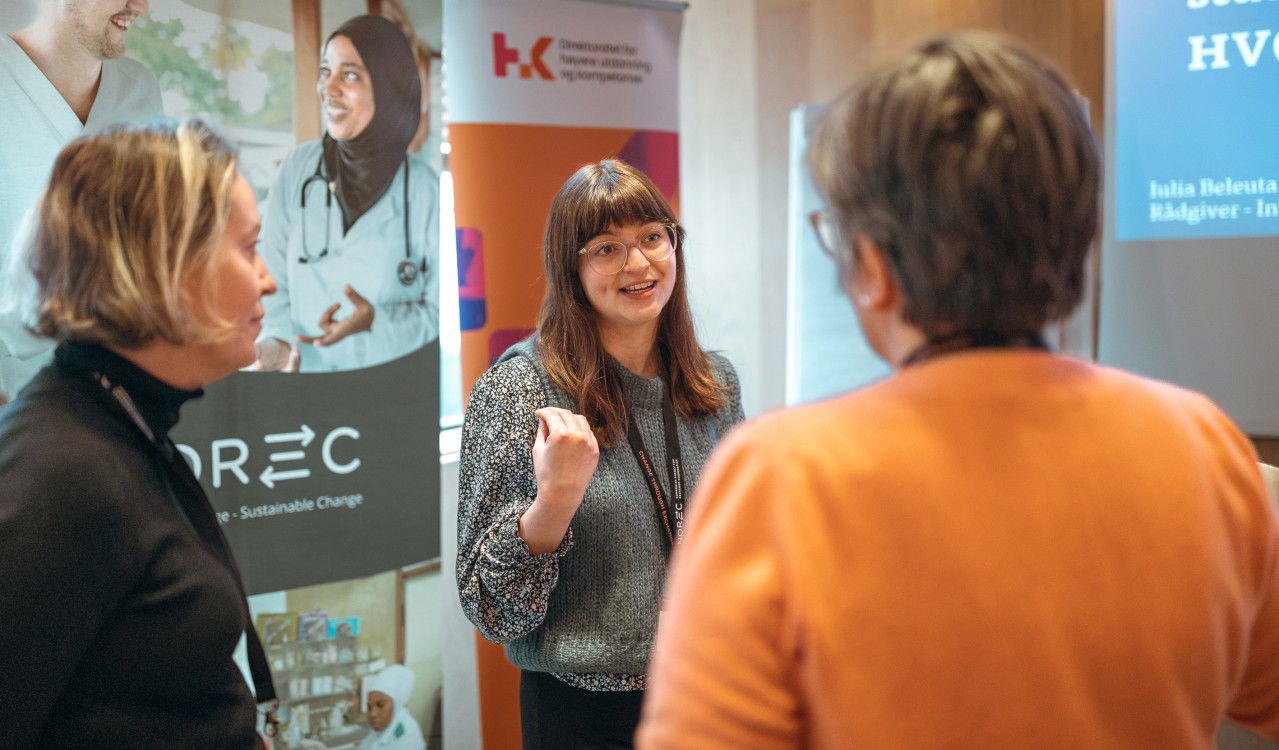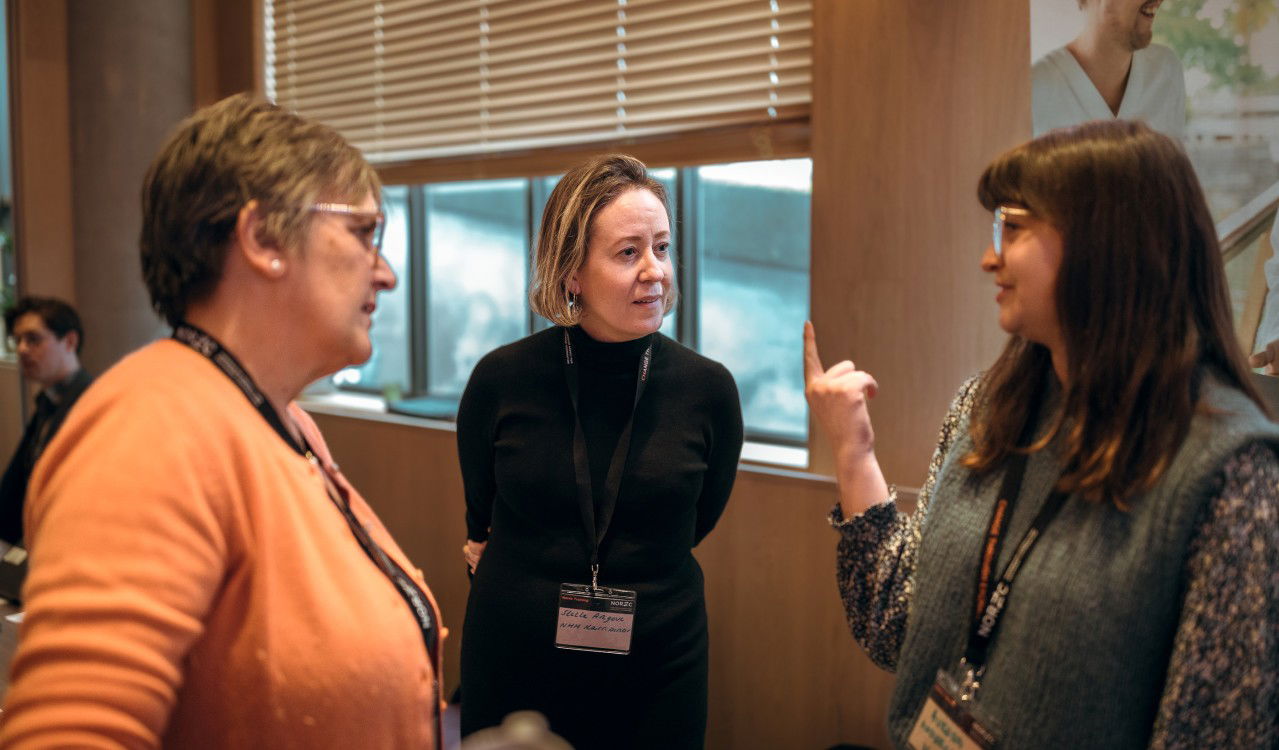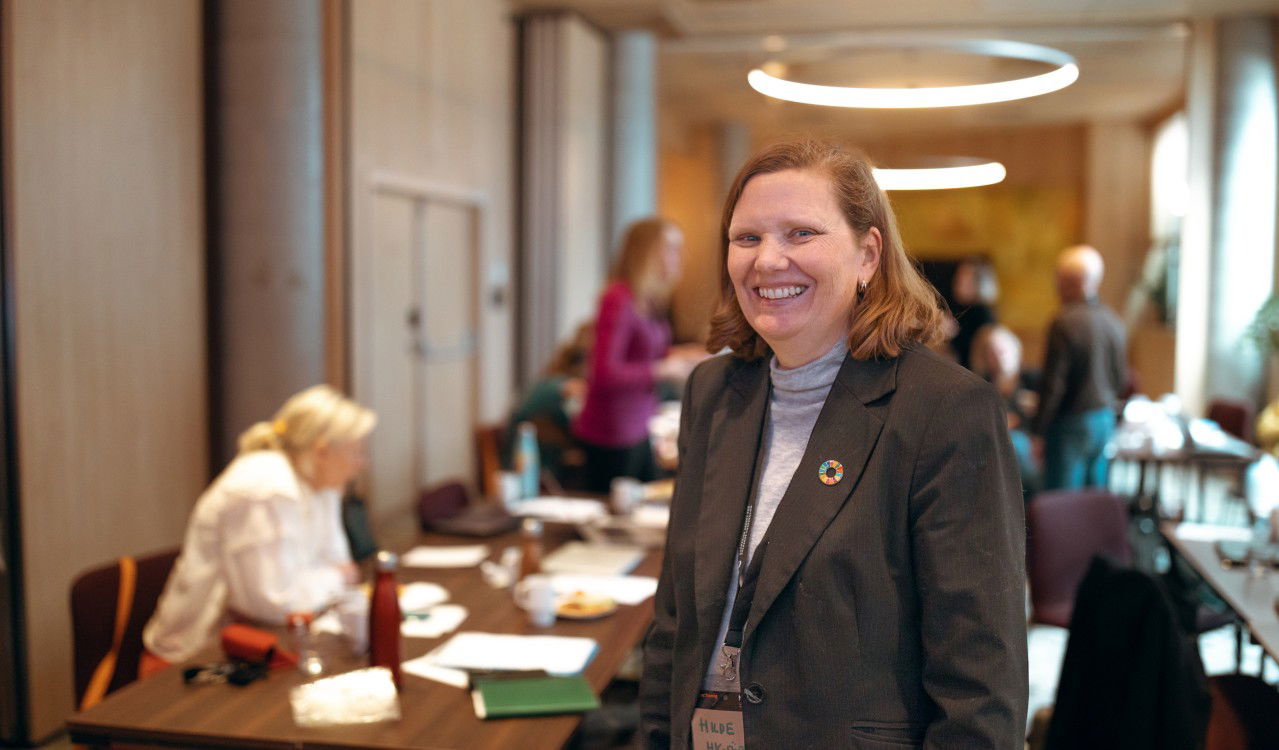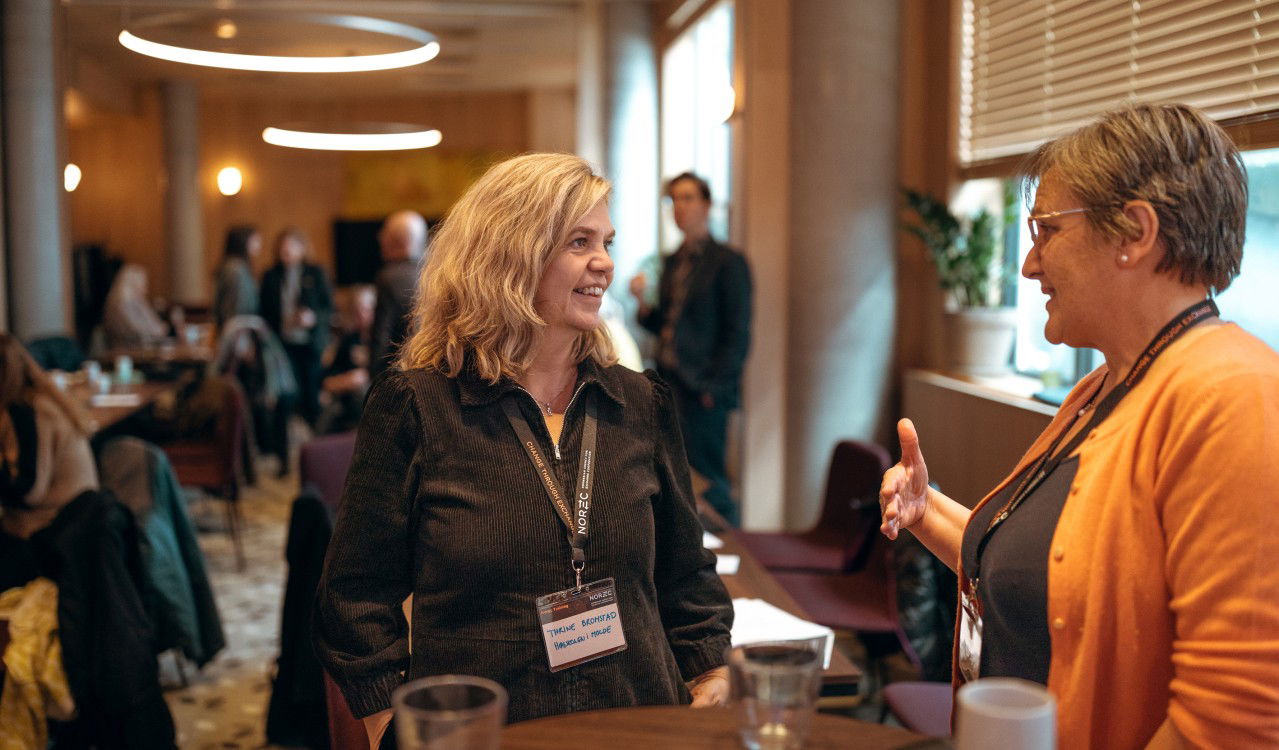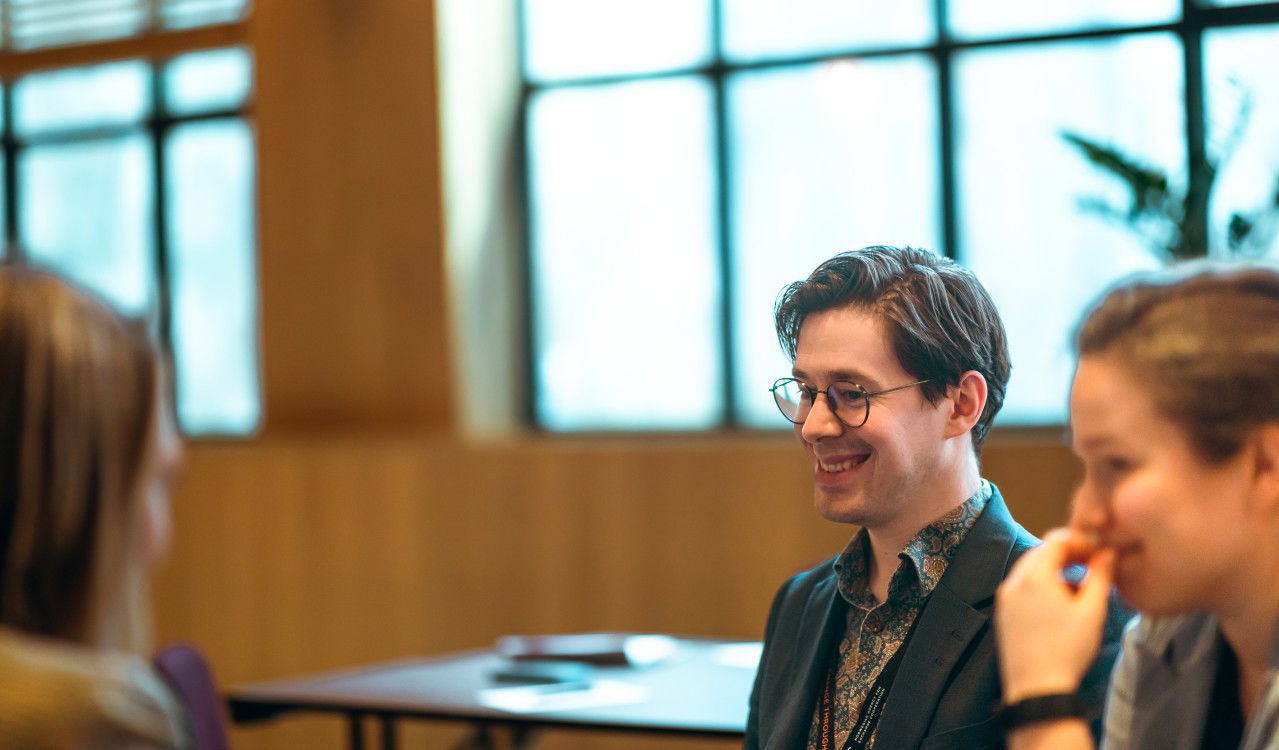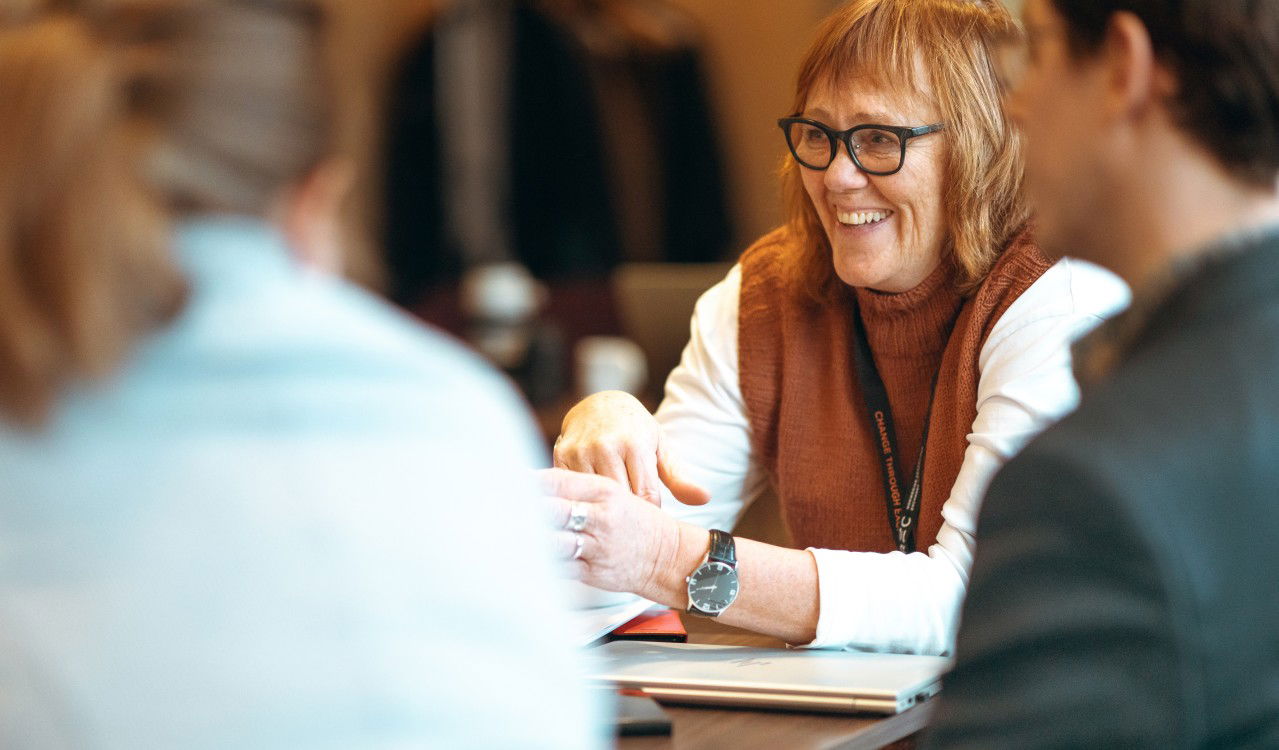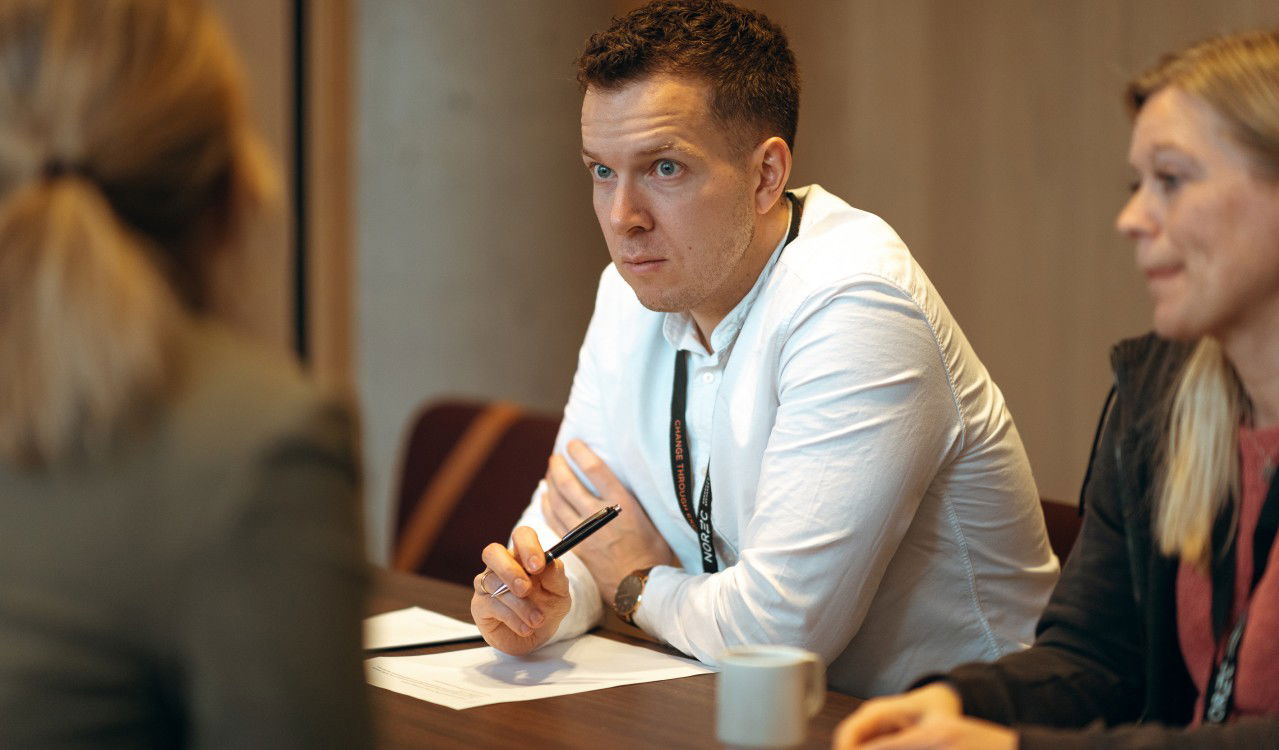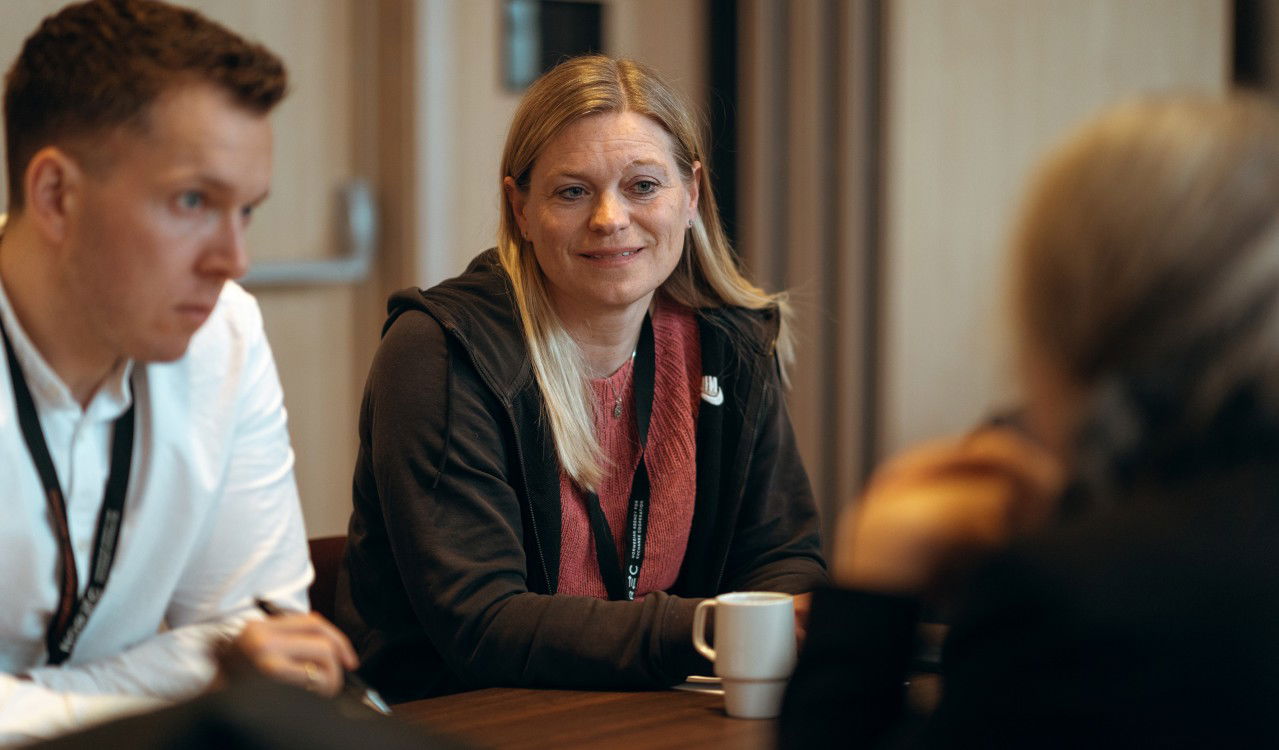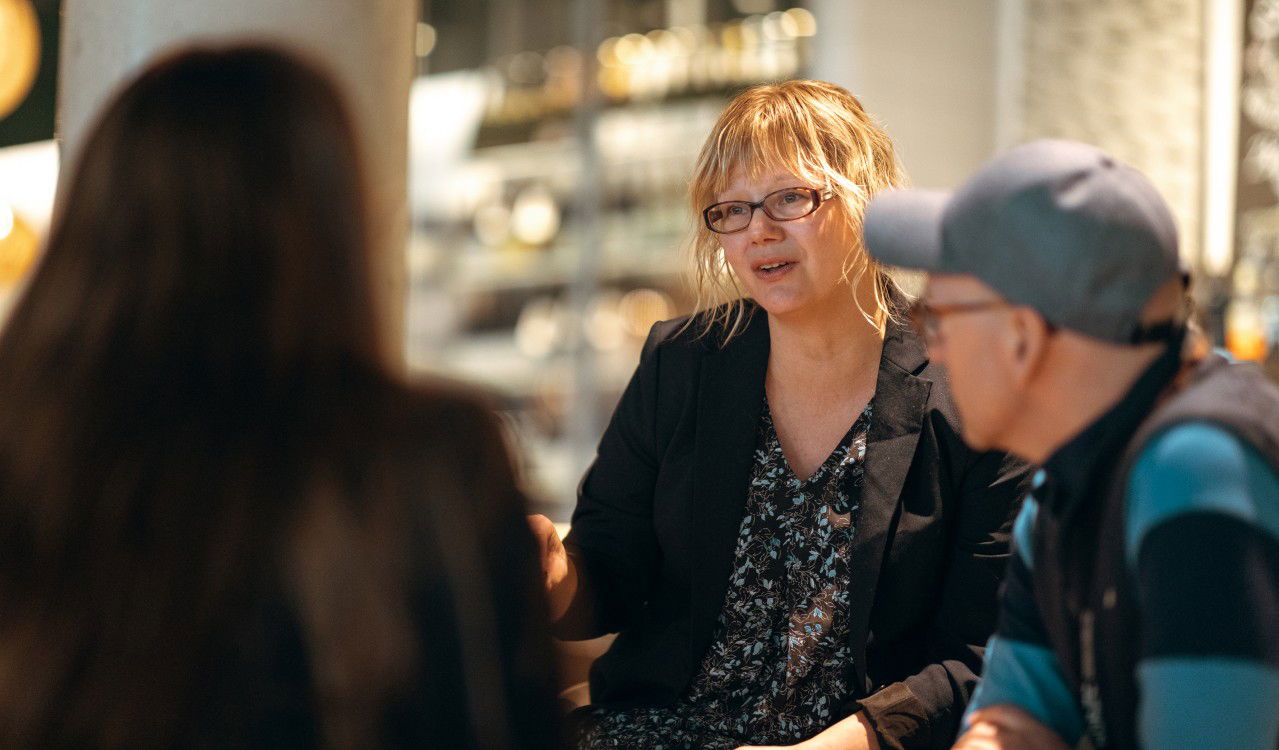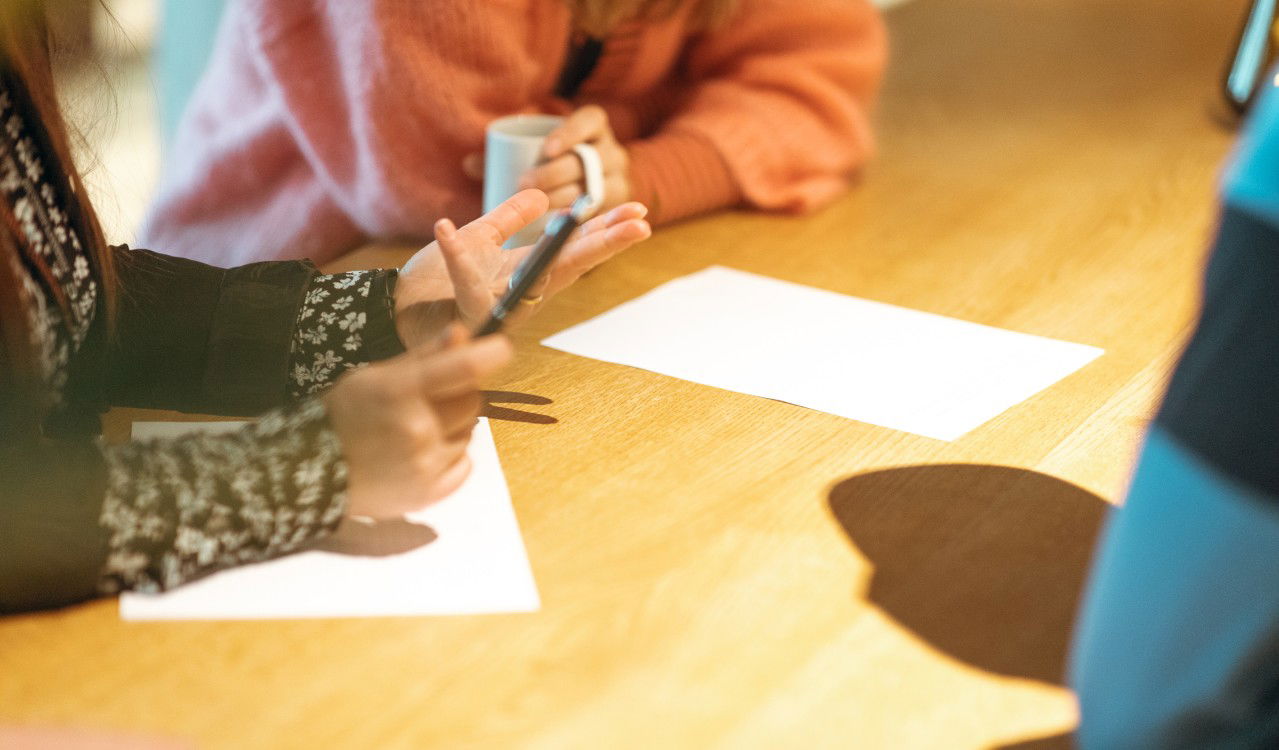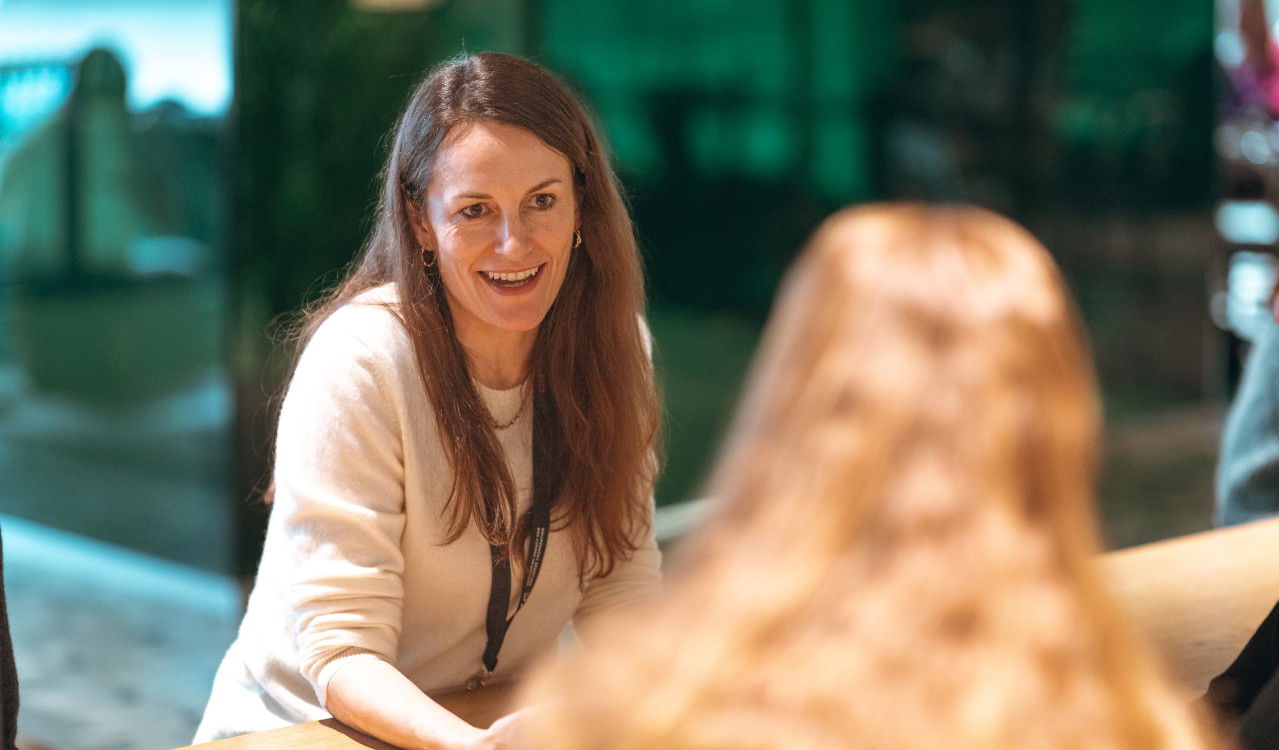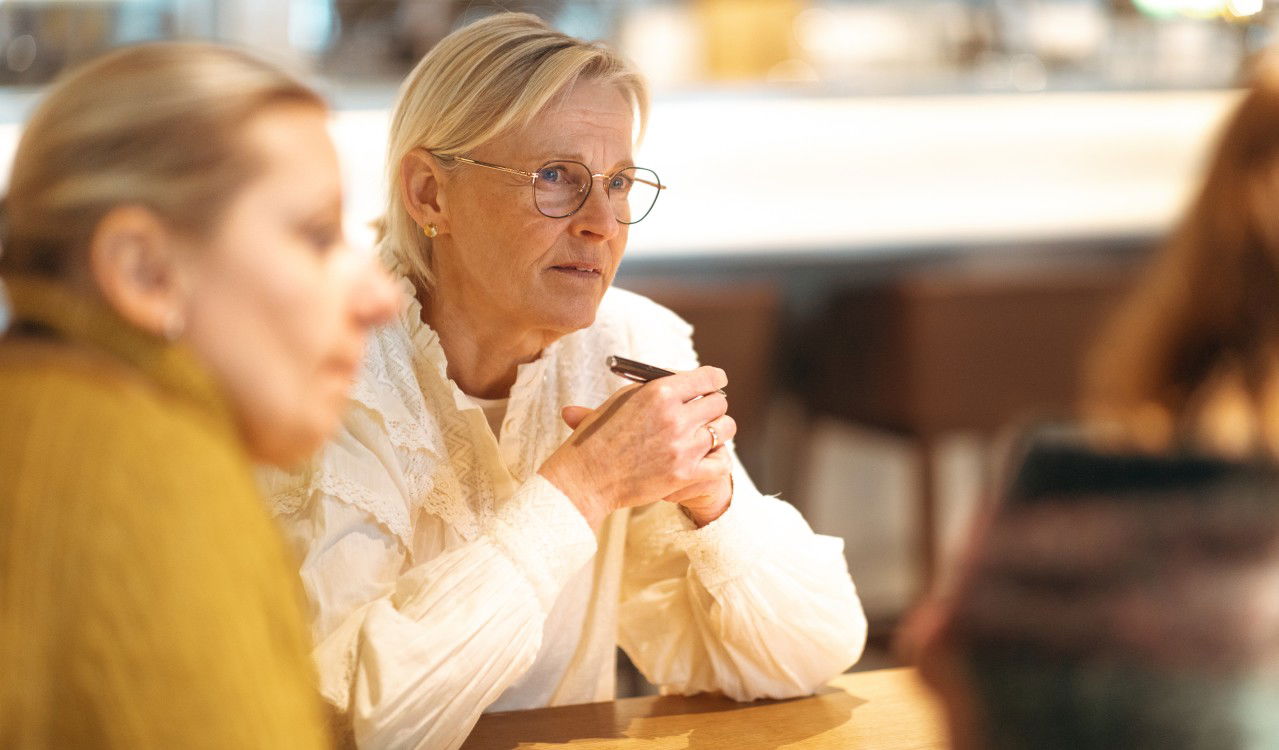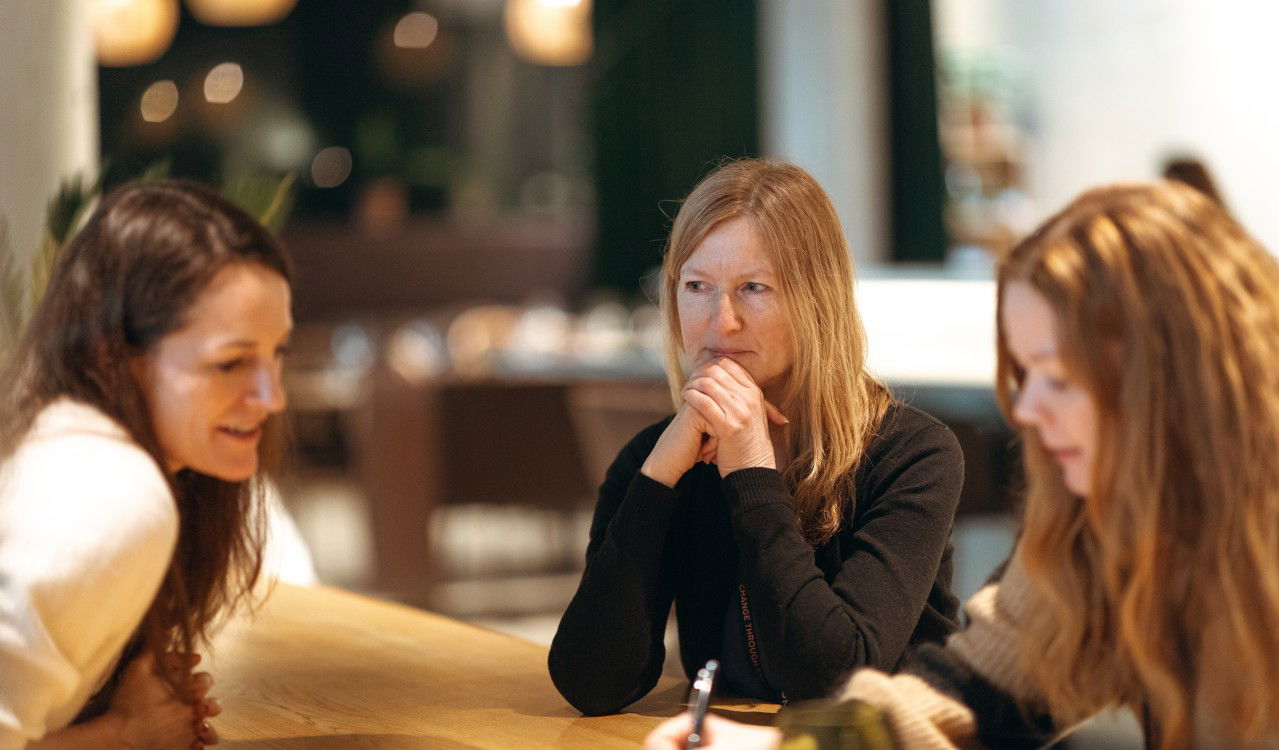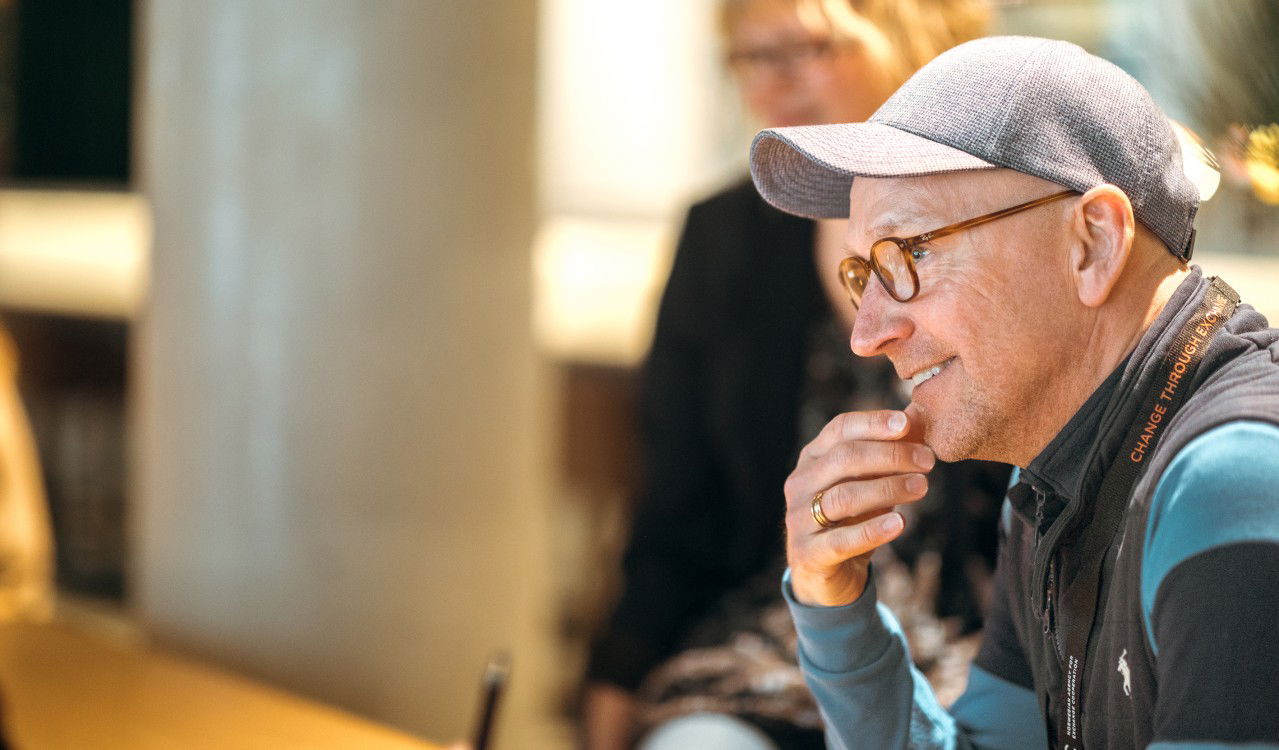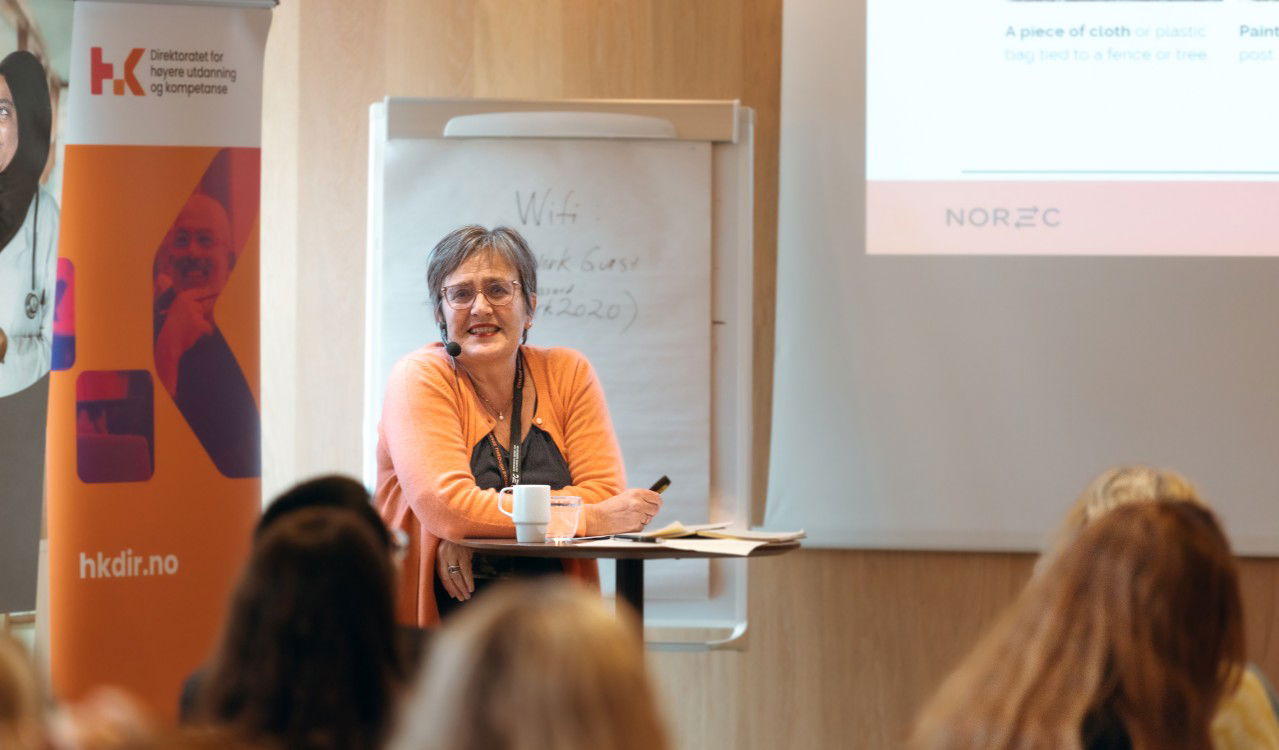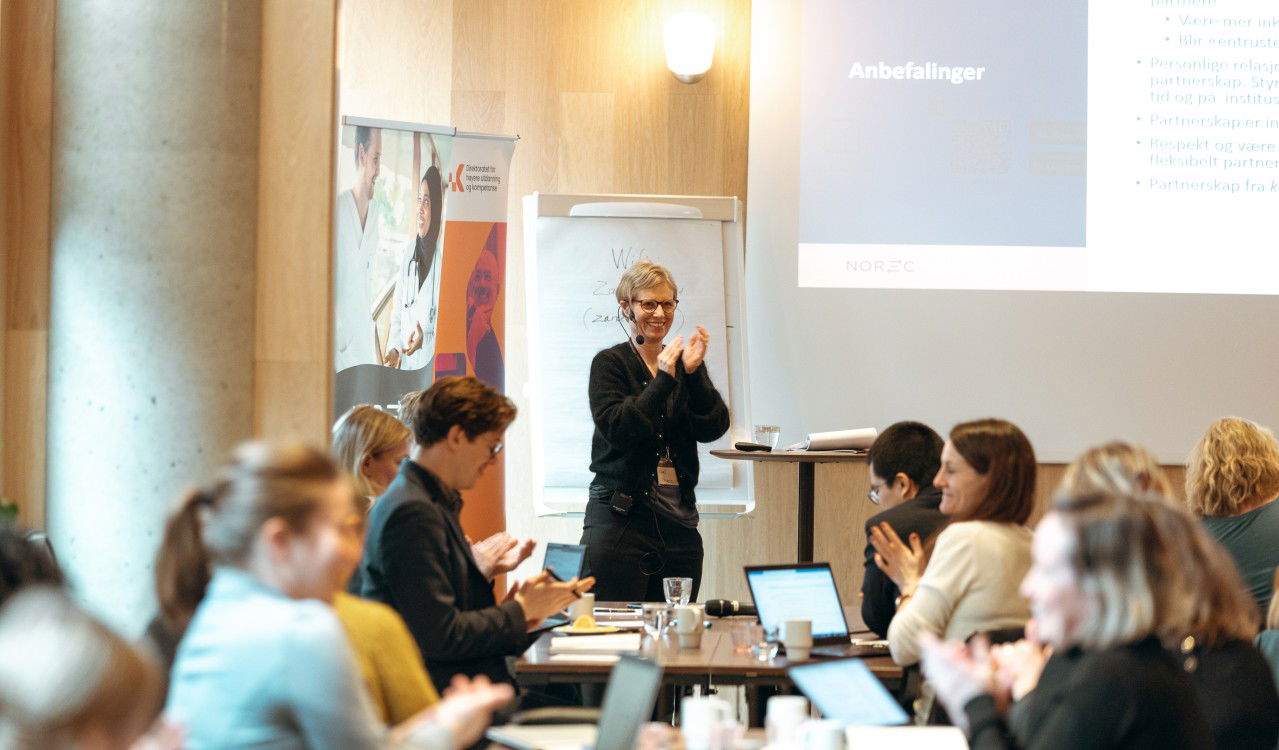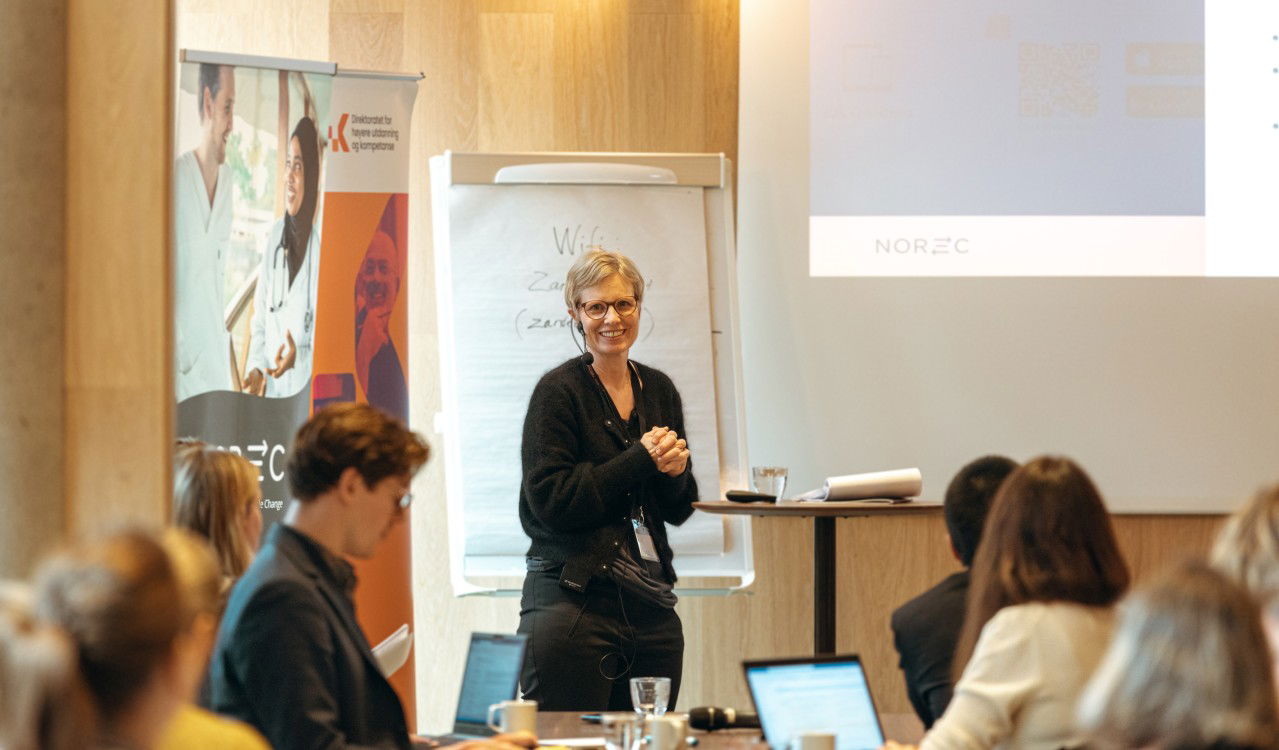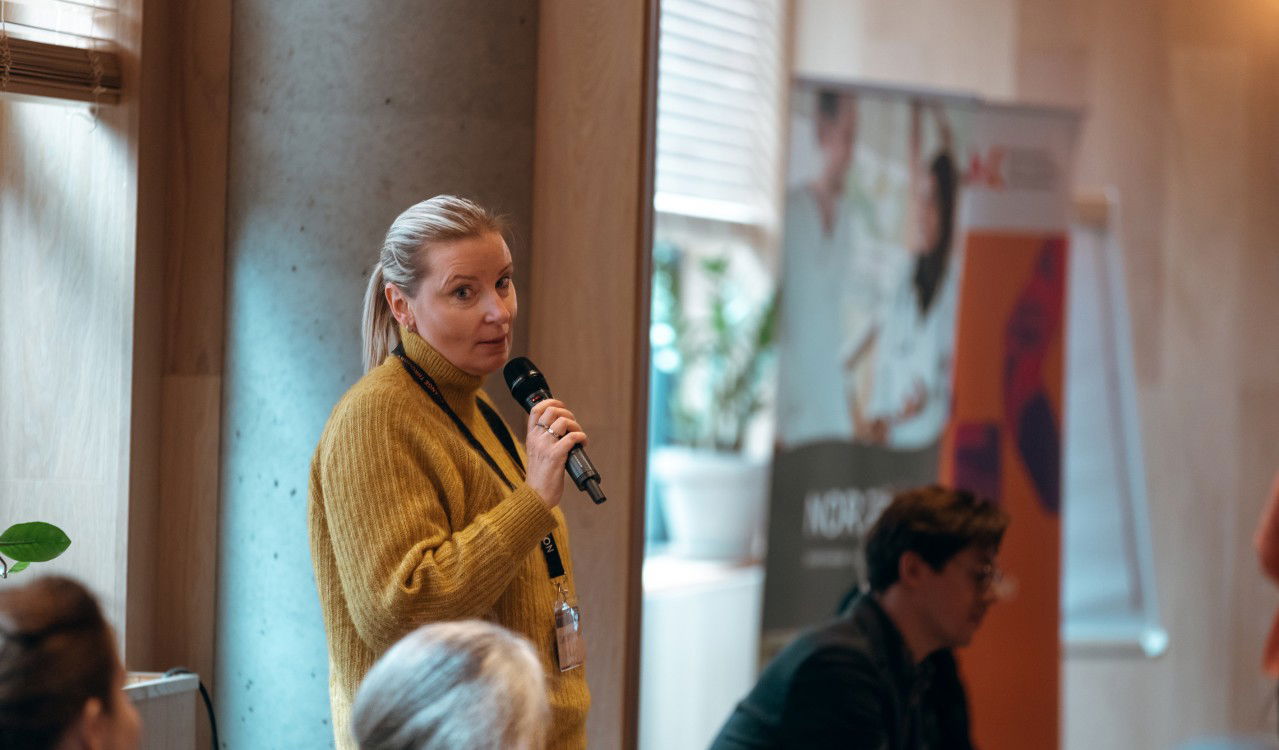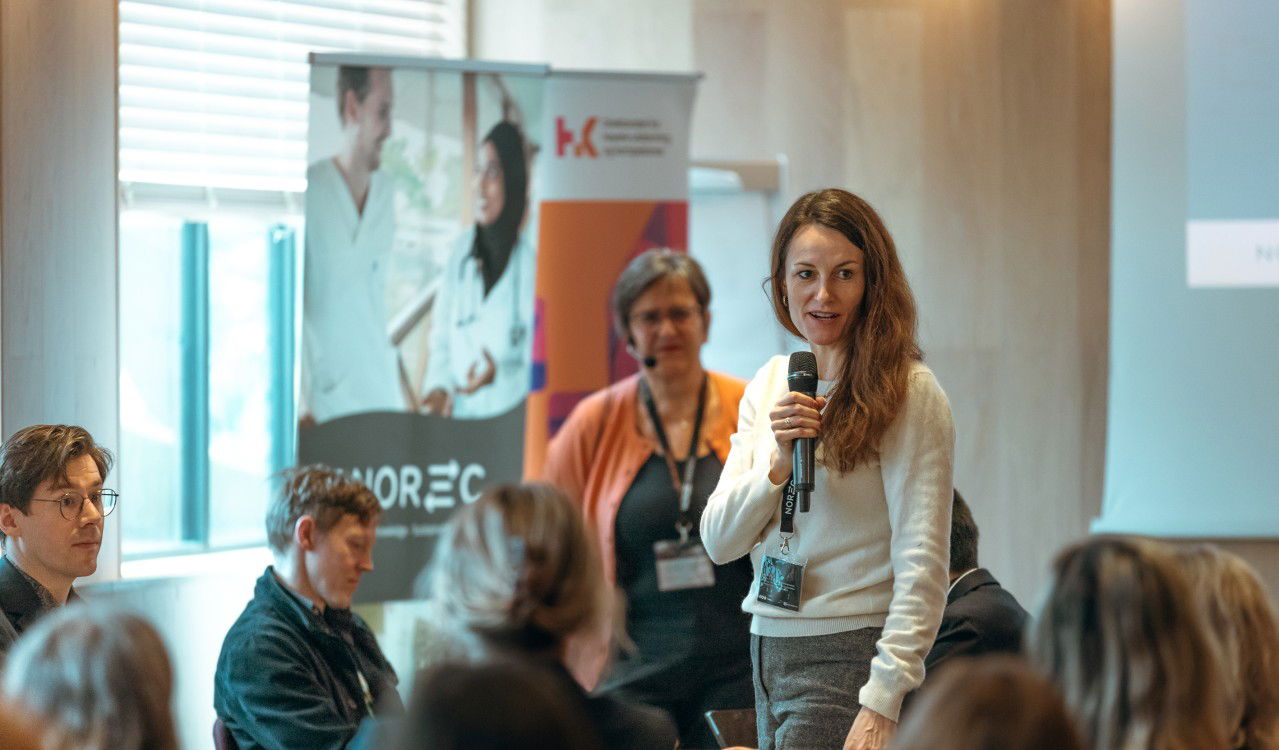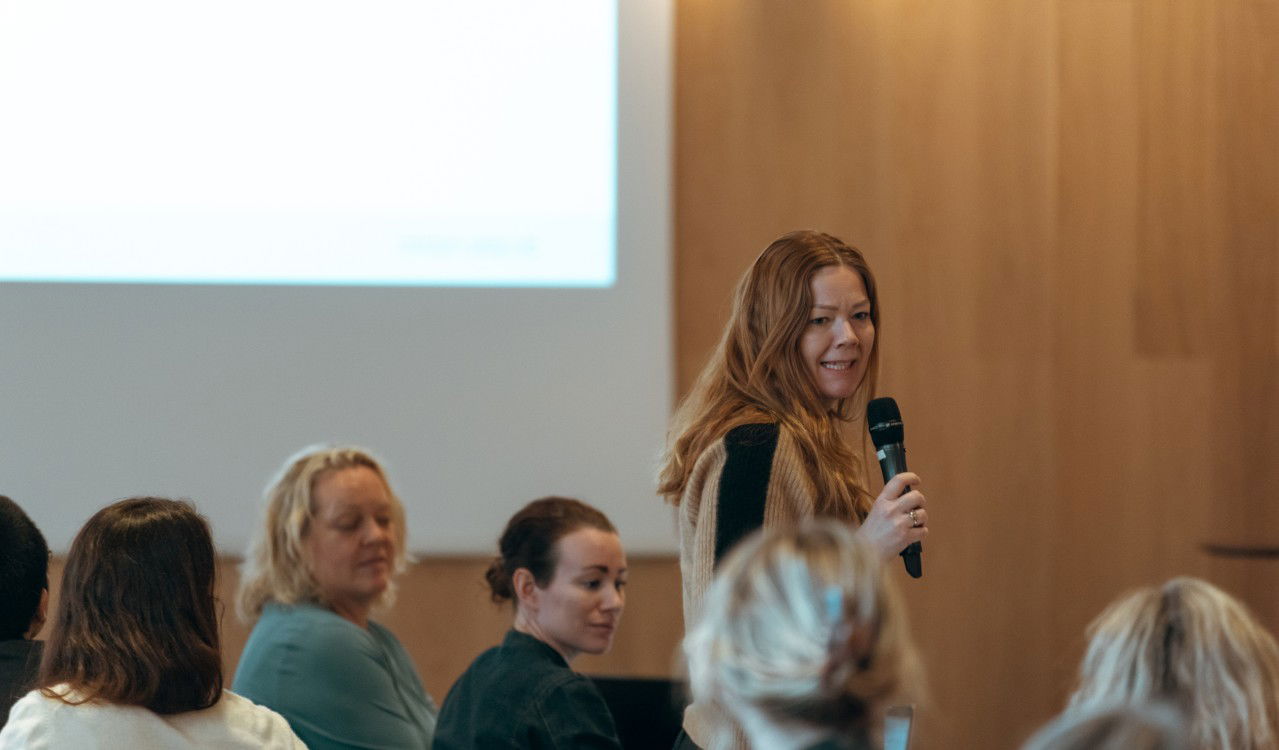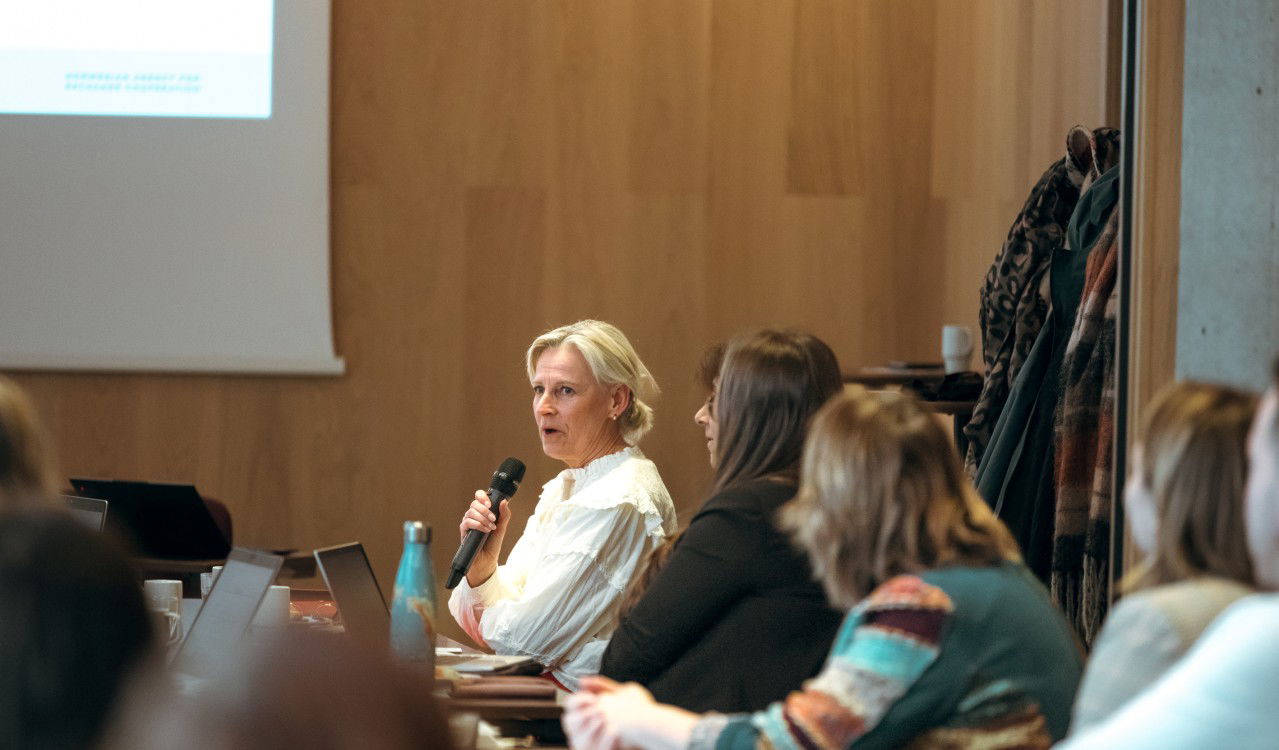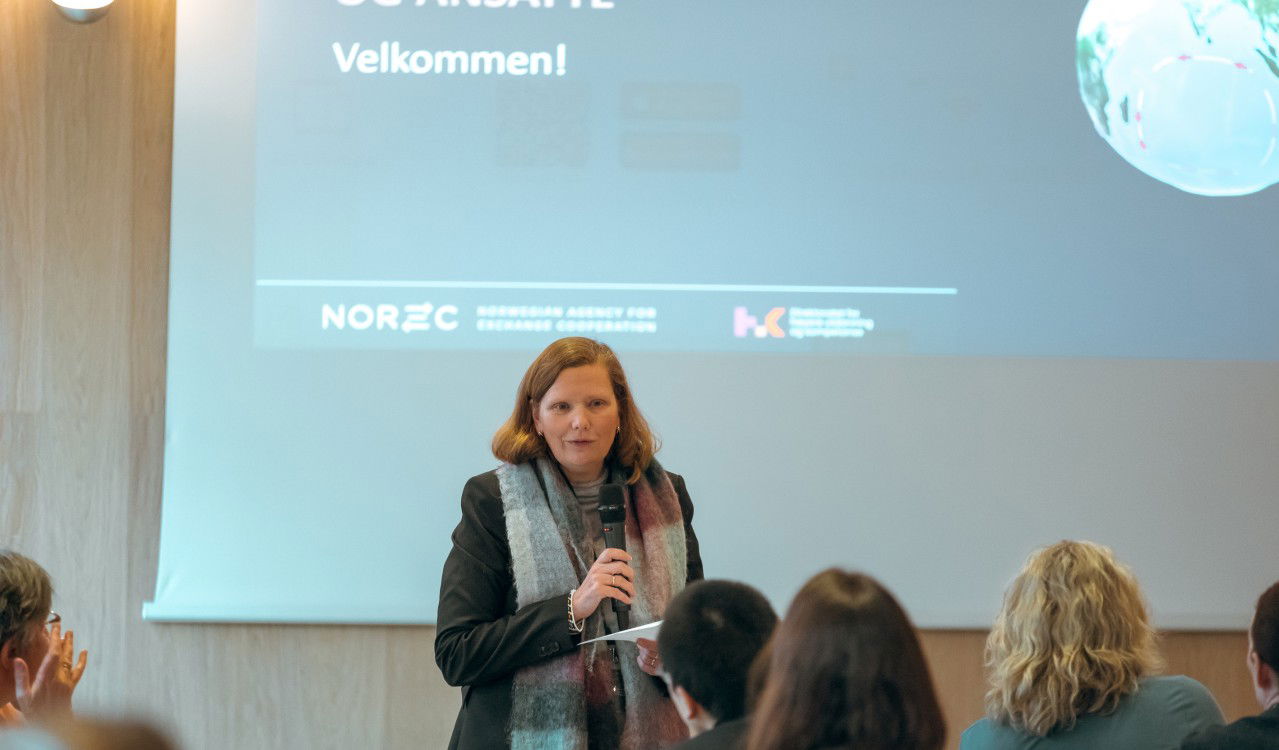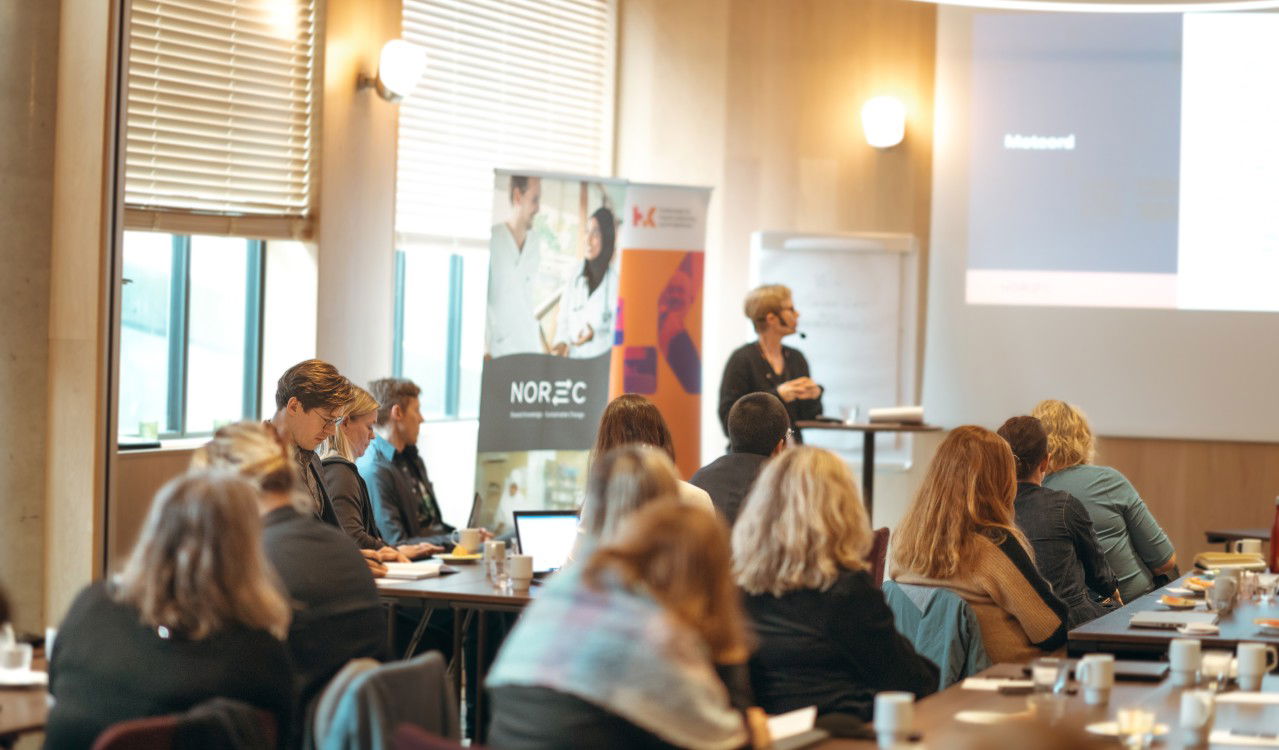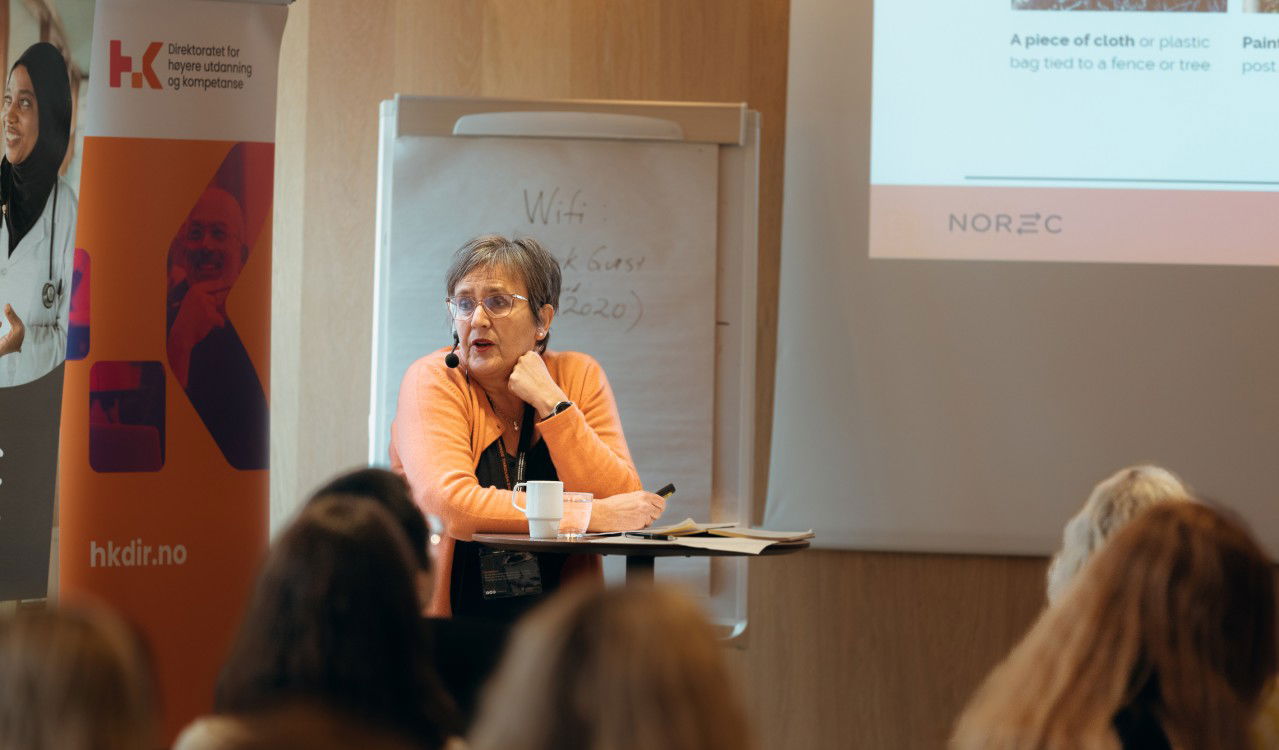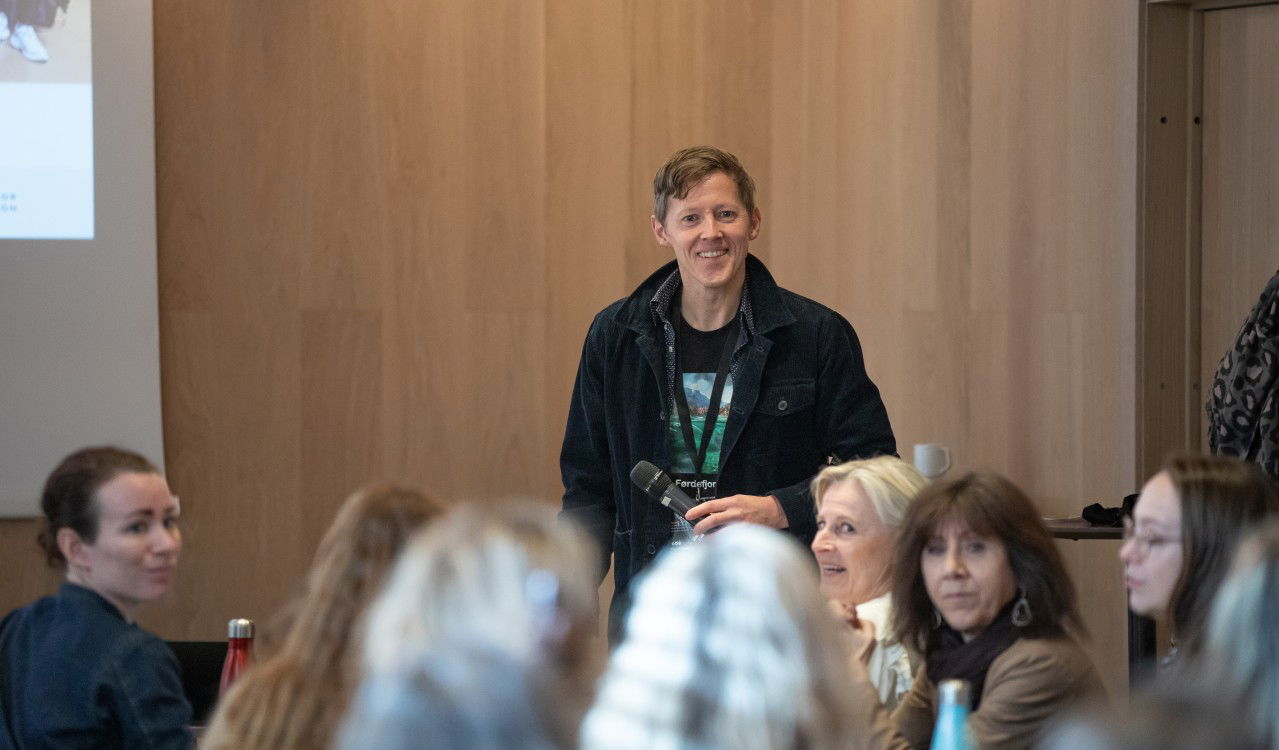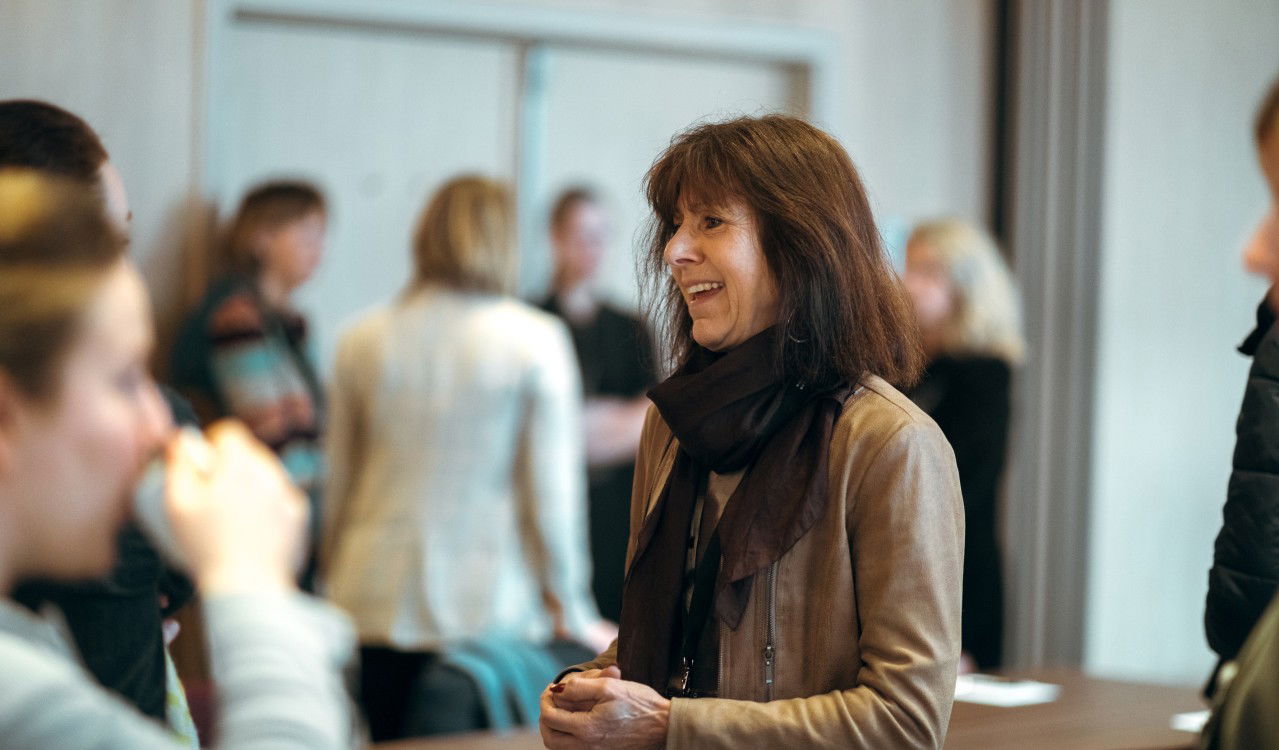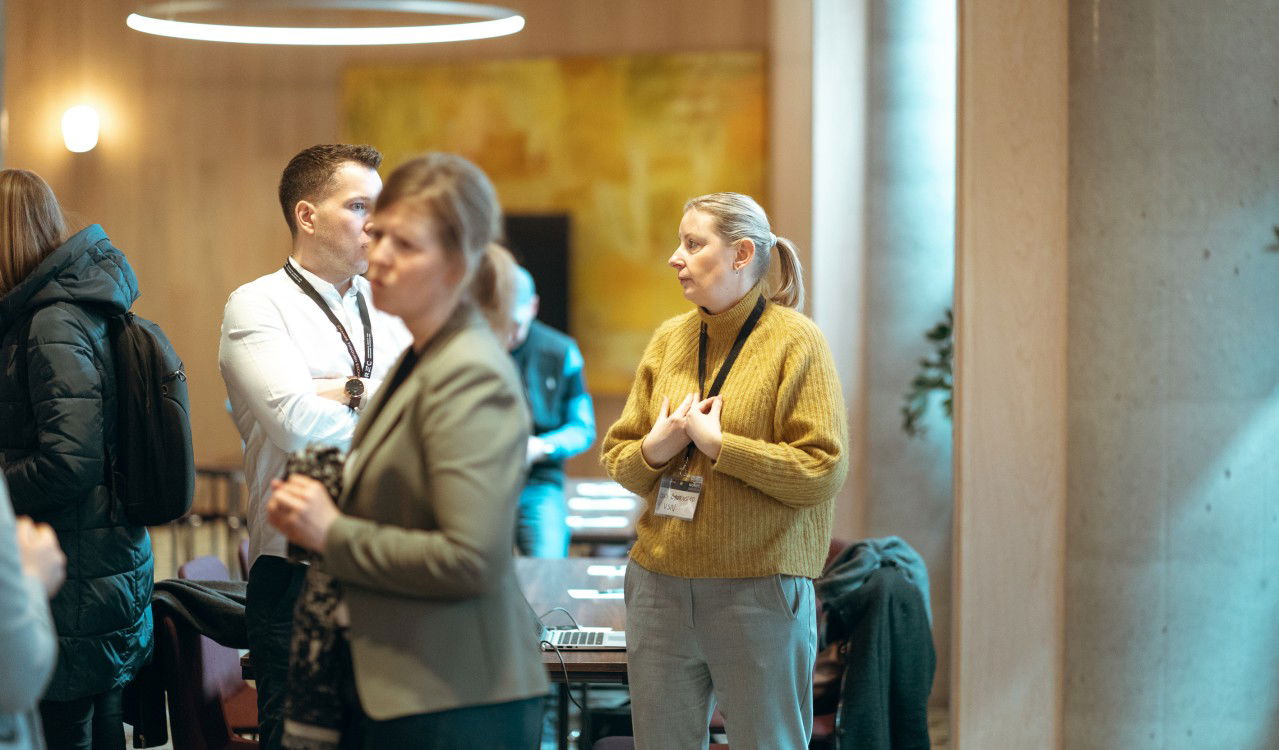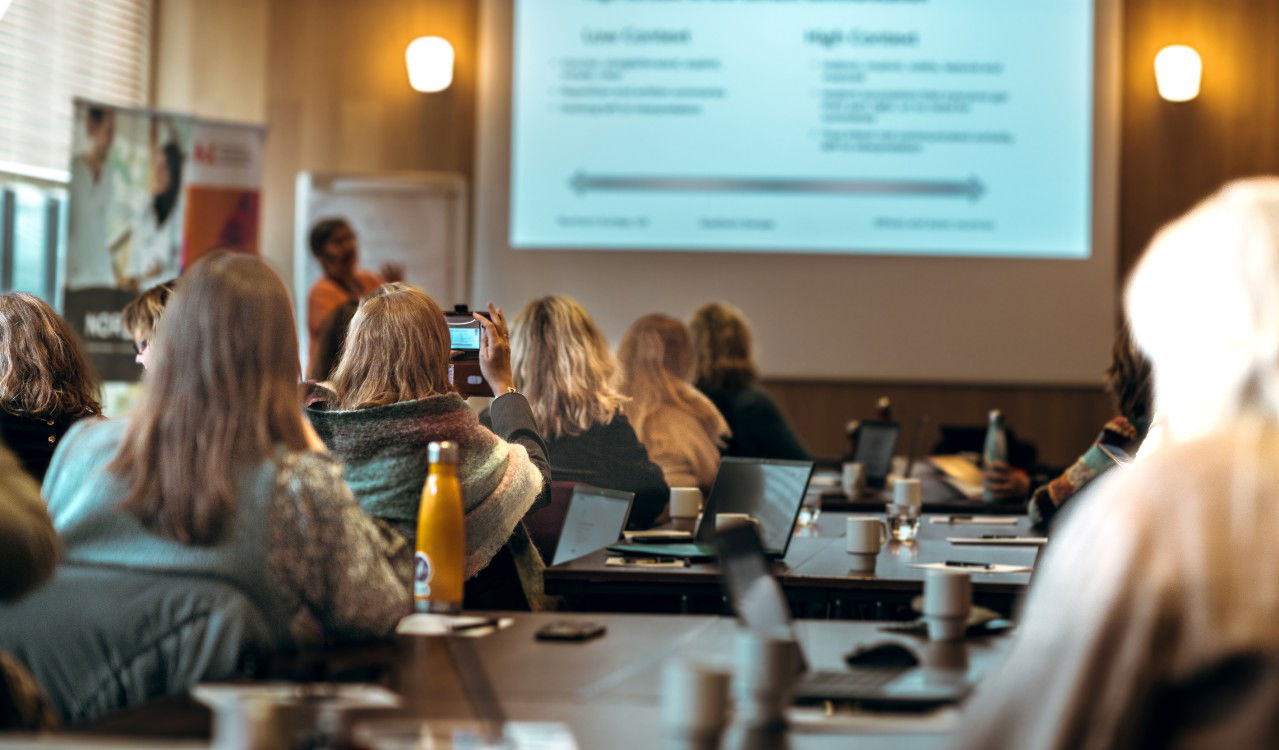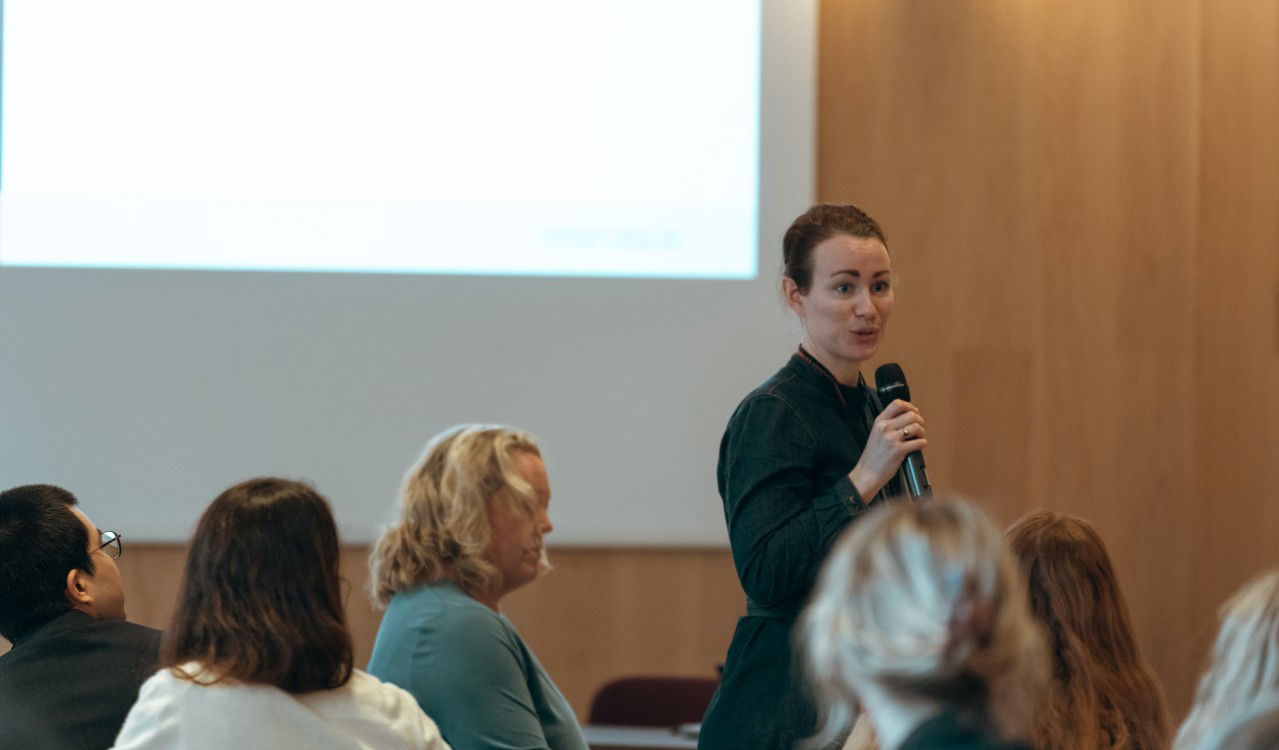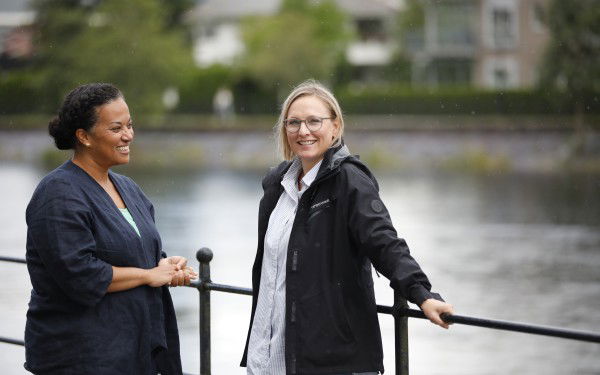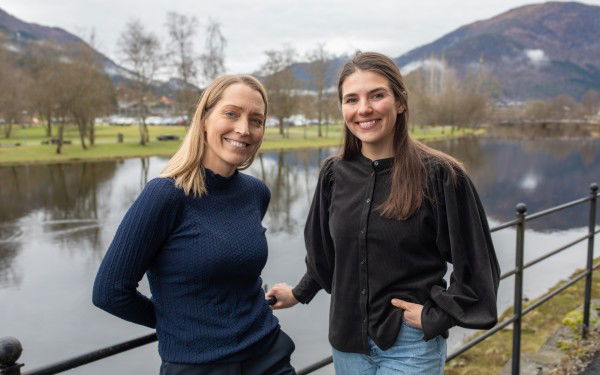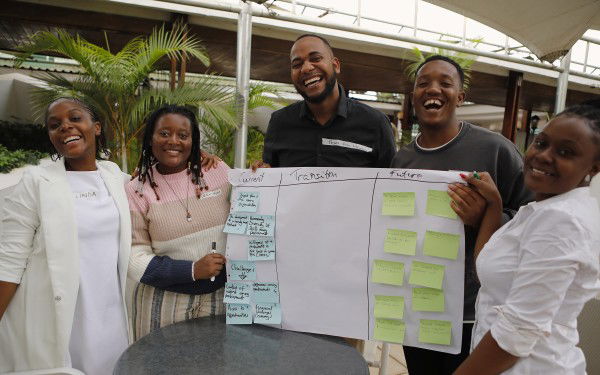Norwegian Directorate for Higher Education and Skills and Norec bring together the professional community in Western Norway
22. May 2023
– The government wants half of all Norwegian students to spend part of their studies abroad. To achieve this goal, we need to offer these students a better experience and closer follow-up, says Departmental Director Hilde Haaland-Kramer of the Norwegian Directorate for Higher Education and Skills from the podium.
This week, the Norwegian Agency for Exchange Cooperation (Norec) and the Norwegian Directorate for Higher Education and Skills (HK-dir) were finally able to host our first joint seminar on student and employee exchanges.
Seated in the auditorium were 40 employees of various institutes, faculties and exchange programmes at Norwegian university colleges and universities that offer exchanges. With input and good contributions from the sector, the seminar provided an opportunity to share good practices and challenges faced by both institutions and on the individual level.
-
Mobility Report
- Report to the Storting 7 (2020–2021) ‘A world of possibilities — International student mobility in higher education’
- The goal of this report is to contribute to a cultural shift in the university and university college sector, so that international mobility becomes an integral part of all study programmes.
- The report reaffirms the government’s goal for half of all those who earn a degree in Norwegian higher education to have had the opportunity to study abroad for part of their degree.
– We’re delighted that Norec was able to organise this seminar together with HK-dir. As a national competence centre for exchange cooperation, we have 60 years of experience with sending people on exchanges and 20 years with mutual exchanges and equal partnerships, says Head of Section – Training at Norec Øystein Garfors.
He then emphasises,
– Together with the Norwegian Directorate for Higher Education and Skills, we provide key knowledge about exchanges and mobility in higher education, and we believe that this marks the start of a productive partnership and stronger professional community.
– This will enable us to achieve the goals of the Report to the Storting on student mobility
In the changing international and geopolitical environment, international collaboration is not only more challenging, but all the more important. Departmental Director Hilde Haaland-Kramer of the Norwegian Directorate for Higher Education and Skills confirmed the importance of increasing the quality of exchanges:
– The mobility report aims for 50% student mobility. To reach this high percentage, we need to ensure a better experience and closer follow-up. This is where the Centre of Competence Norec comes in, with its many years of experience, she says, and is supported by Garfors.
Agnete Viborg from the Norwegian Directorate for Higher Education and Skills presented the findings of a report on professional interaction between Norwegian and international students, specifying the challenges faced by incoming students in particular. This provided an opportunity for fruitful discussions on the topic.
– We have to ensure that both incoming and outgoing exchange students have a positive experience. We need to work to improve the structural aspects of the exchange and provide better guidance to students. This must be based on intercultural expertise, not only practical knowledge, she says and refers to the work carried out by the participating institutions.
International Adviser Iulia Beleuta from Volda University College talked about how they work with incoming students in Volda.
Knowledge sharing across the board
During the course, a selection of higher educational institutions shared their approaches to student exchanges. International Adviser Iulia Beleuta from Volda University College and Stella Kristine Angove and Alexandra Blumenstein from the NHH Norwegian School of Economics talked about how educational institutions work with exchanges and full-time degree students. One of the goals of the seminar was to strengthen the professional community specialising in exchanges.
– Not only did the participants find the seminar to be highly relevant, but are also interested in learning more about available project schemes, as well as how they can facilitate outgoing and incoming students and employees even better, says Øystein Garfors.
The feedback received from participants has increased motivation to organise more similar activities. The goal is to also hold courses for higher educational institutions in other parts of the country.
– These courses are an excellent way to stay in close contact with the institutions and learn about the latest developments, while at the same time increasing expertise about what students and employees need, he concludes.


